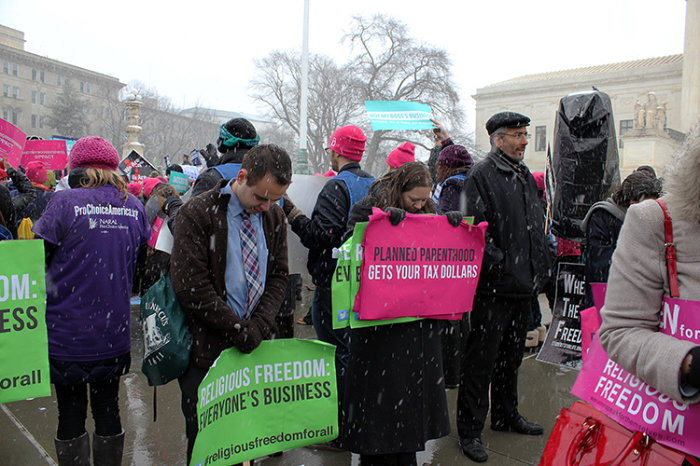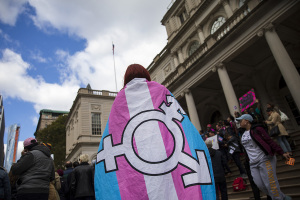Supreme Court Hobby Lobby Decision a Win for Religious Freedom, Not About Contraception, Christian Leaders Say

The U.S. Supreme Court's Monday decision allowing owners of closely held for-profit corporations with certain religious convictions to opt-out of parts of the "Obamacare" birth-control mandate was a win for religious freedom, some Christian leaders have said.
Jim Daly, president of Focus on the Family, said in a statement that the decision "shows that religious freedom continues to be the lifeblood of a country founded on the inalienable rights afforded to us by our Creator."
"Religious groups and business owners should not have to violate their faith in order to follow the law. It's not the role of government to define what we believe or what our faith includes," said Daly.
"Fundamentally these cases were not about abortion or contraception: they were about whether government can require faith-based groups to violate deeply held beliefs."
Russell Moore, president of the Ethics and Religious Liberty Commission of the Southern Baptist Convention, wrote in a statement Monday that the Hobby Lobby decision was "a win for everyone."
"Here's why. A government that can pave over the consciences of the Greens can steamroll over any dissent anywhere," wrote Moore.
"Whether you agree or disagree with us about abortion, every American should want to see a government that is not powerful enough to set itself up as a god over the conscience."
Moore added that he hoped "this decision is a warning to the White House to stop such a cavalier disregard of religious liberty."
"More than that, though, I pray for churches that can raise up a new generation to prize freedom of conscience and religious liberty for all," continued Moore.
"We won this case, and now is the time to thank God. But who could have imagined just a few years ago that we would even have to take such a thing to the United States Supreme Court?"
On Monday, the United States Supreme Court ruled in a 5 to 4 decision that Hobby Lobby and two other for-profit businesses were not obligated to provide certain forms of birth control as mandated by the Department of Health and Human Services.
In the majority opinion, authored by Justice Samuel Alito, the highest court in the land concluded that the Religious Freedom Restoration Act applied to closely held businesses whose owners held a religious objection to the HHS mandate.
"The Government has failed to satisfy RFRA's least-restrictive means standard. HHS has not shown that it lacks other means of achieving its desired goal without imposing a substantial burden on the exercise of religion," wrote Alito.
The decision also stressed that it only concerned the HHS mandate and not other possible insurance coverage issues, like vaccinations or blood transfusions.
Alito was joined by Justices Antonin Scalia, Anthony Kennedy, Clarence Thomas, and Chief Justice John Roberts. Dissents came from Justices Ruth Bader Ginsburg, Sonia Sotomayor, Stephen Breyer, and Elena Kagan.
Other conservative leaders also hailed the Supreme Court decision. Tony Perkins, president of the Family Research Council, stated that the decision was "one of the most significant victories for religious freedom in our generation."
"All Americans can be thankful that the Court reaffirmed that freedom of conscience is a long-held American tradition and that the government cannot impose a law on American men and women that forces them to violate their beliefs in order to hold a job, own a business, or purchase health insurance," stated Perkins.
Numerous pro-choice and leftwing organizations denounced the Supreme Court decision, claiming it to be an attack on health care for women.
Ilyse Hogue, President of NARAL Pro-Choice America, stated that the decision was "an attack on women and our fundamental rights."
"This ruling goes out of its way to declare that discrimination against women isn't discrimination," said Hogue.
"Allowing bosses this much control over the health-care decisions of their employees is a slippery slope with no end."
Roy Speckhardt, executive director of the American Humanist Association, said in a statement that religious liberty did not benefit from the Hobby Lobby decision.
"The Supreme Court has placed the religious views of corporate shareholders over the legitimate health care concerns of employees," said Speckhardt.
"This isn't religious liberty — it's religious intrusion that will negatively affect many hard-working Americans."





























